Assessment of Benefits and Drawbacks of the National Health Insurance Scheme among Enrollees in Metropolitan Jos, Plateau State, Nigeria: Implications for Universal Health Coverage
Keywords:
National Health Insurance Scheme, enrollees, benefits, drawbacks, Jos, NigeriaAbstract
Background: Access to healthcare services in Nigeria is a huge public health challenge partly because healthcare expenditures are largely out-of-pocket. The National Health Insurance Scheme was established to bridge this gap. The aim of the study was to determine the benefits of the scheme to enrollees and their perception of the quality of services received through the scheme. Methods: This was a cross-sectional study of the Scheme enrollees in secondary healthcare facilities in the Jos metropolis. Ten healthcare facilities were selected from the list of accredited facilities by balloting. A total of 224 respondents participated in the study. Data was collected using a validated but adapted structured interviewer-administered questionnaire. This was analyzed using IBM Statistical Product and Service Solutions version 23.0 and presented in tables of frequencies and proportions. Results: The mean age of respondents was 39 ± 9 years, 147[65.0%] of whom were females. About 80.4% of respondents had tertiary education and most worked in public health facilities. One hundred and thirty enrollees [58.0%] experienced shorter waiting times, 190[84.8%] paid reduced hospital bills and 152[67.9%] said it improved financial access to health care. Challenges encountered were frequent out-of-stock drugs (140 [62.5%]), limited drug list (140 [62.5%]) service not covering relatives (154 [68.8%]), and some chronic diseases (159 [71.0%]). Quality of service was rated as good. Conclusion: The NHIS has great benefits for enrollees as it reduces out-of-pocket payments and prevents catastrophic health expenditures. However, services need to be expanded and improved to facilitate the attainment of universal health coverage.
Downloads
Published
How to Cite
Issue
Section
License
Copyright (c) 2023 T J Akosu, P A Odunze, I B Kefas, E L Ismaila, U Adamu, P A Adeoye

This work is licensed under a Creative Commons Attribution-NonCommercial-ShareAlike 4.0 International License.


 Contact Us
Contact Us Editorial Team
Editorial Team Join As A Reviewer
Join As A Reviewer  Request For Print Copy
Request For Print Copy Indexing Information
Indexing Information


 Cprint Publishers
Cprint Publishers